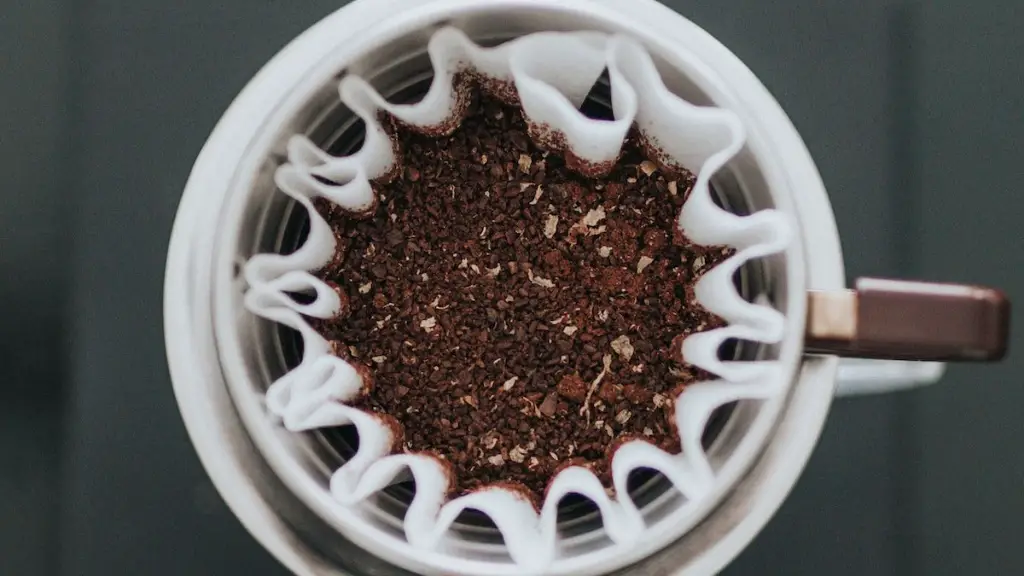Is It Safe to Drink Coffee During Pregnancy?
Coffee has been a part of everyday human rituals for hundreds of years. While once thought of as a spirit food, it is now also seen as a way to make a quick break in the morning fast and easy. But along with all its convenience, there is one question that lingers: is it safe to drink coffee during pregnancy?
The question of whether or not it is safe to drink coffee during pregnancy has been widely debated in the medical community. According to the Office on Women’s Health, the general consensus is that it is safe to consume up to 200 milligrams of caffeine a day during pregnancy, which is about one cup of coffee. While it may be safe to drink coffee, there is still a concern over how much caffeine can be consumed, as there is a chance that the caffeine can cross the placenta and go to the growing fetus, which can potentially put the baby at risk from slowed growth or preterm labor.
Despite the consensus that there is some amount of caffeine that is safe to drink, there are conflicting opinions on the matter. Some experts argue that 200 milligrams of caffeine a day could be harmful and it should be reduced to a maximum of 100 milligrams. Moreover, there is also research which suggests that women who consume a lot of caffeine have higher chances of having a miscarriage. While these studies have yet to be proven and there is no definitive answer as of yet, it is something that pregnant women should keep in mind while considering their coffee consumption.
In addition, pregnant women should also be mindful of other factors when considering coffee consumption. For instance, caffeine can have effects on different people in different ways. Some pregnant women may find that consuming coffee makes them feel more alert and better able to stay focused, while others might feel overly jittery and edgy. Coffee can also interfere with an expectant mother’s ability to get a good night’s sleep and cause issues with digestion. Therefore, it is important for every pregnant woman to consider her own body and how it reacts to coffee before making any decisions.
Ultimately, the question of whether or not it is safe to drink coffee during pregnancy can only be answered by each woman on an individual basis. While the general consensus is that it is safe to consume up to 200 milligrams of caffeine a day during pregnancy, the most important thing is to pay attention to how your body reacts to the coffee and adjust your caffeine consumption to fit your own comfort level.
The Different Effects of Caffeine on Pregnant Women
One of the main concerns regarding pregnant women drinking coffee is the potential health effects it could have on the baby. While there is some truth to the idea that caffeine can cross the placenta and potentially harm the baby, it’s important to understand that not everyone reacts the same way to caffeine. Some pregnant women may be able to handle higher levels of caffeine, while others may need to reduce their intake or steer clear of the drink entirely.
Caffeine can act as a mild stimulant for pregnant women and cause issues with sleep and digestion. Some women may find that it increases their alertness and helps them stay focused, while others might experience anxiety and difficulty falling asleep. Caffeine can also irritate the stomach and lead to nausea or heartburn.
Due to the potential negative effects of caffeine on pregnant women’s bodies, it is important to keep an eye on your caffeine intake. If you find that you are feeling overly jittery or having digestive problems after drinking coffee, you should consider stopping or reducing your intake. It’s also important to remember that caffeine is not only found in coffee, but also in tea, soda, chocolate, and energy drinks, so it is important to be cautious about how much of these other sources you are consuming as well.
Caffeine Alternatives During Pregnancy
For pregnant women who want the convenience of coffee but want to be sure to avoid the potential risks associated with caffeine, there are plenty of alternatives to consider. Decaffeinated coffee is a popular option, as it still allows you to enjoy the flavor and ritual of drinking coffee without the risks of too much caffeine.
If you’re not a fan of decaffeinated coffee, there are plenty of other options. Herbal teas, such as chamomile and mint, have little to no caffeine and provide the same hot beverage experience without any of the potential side effects. Coconut water is an excellent choice as it provides essential electrolytes and is a refreshing, hydrating beverage. And for those who crave something sweet, sparkling water or juice can provide a sweet treat without any of the caffeine.
Finally, for those who still want the flavor of coffee but don’t want any of the potential risks associated with caffeine, there are now plenty of coffee substitutes on the market that mimic the taste of coffee without any of the caffeine. These coffee substitutes come in a variety of flavors, from classic dark roast to herbal blends, so you can enjoy your favorite coffee flavor without the potential risks associated with actual caffeine.
Change In Caffeine Intake During Different Stages Of Pregnancy
Women can adjust their caffeine intake during different stages of pregnancy as their bodies transition and their cravings change. It is important to remember that some pregnant women may need to reduce their caffeine intake during later stages of pregnancy. This is because the baby is growing rapidly and will be increasingly sensitive to the effects of caffeine.
Caffeine consumption should be limited to the first and second trimester of pregnancy. For the remaining trimesters, pregnant women should be mindful and reduce their intake of coffee and other sources of caffeine. Many pregnant women find that as their pregnancy progresses, their coffee cravings diminish. This could be an indication that their body is telling them to reduce their caffeine intake as the baby grows and matures.
Also, pregnant women who take additional medications or supplements may want to be cautious when it comes to caffeine intake. Caffeine can interact with some medications and supplements, so it is important to check with your doctor before consuming anything with caffeine.
Health Benefits of Coffee for Pregnant Women
Though there are risks associated with caffeine during pregnancy, there are some health benefits associated with moderate coffee consumption. For example, moderate coffee consumption can help reduce the risk of gestational diabetes and lower the risk of complications in pregnancy. Additionally, drinking coffee can provide an energy boost, help reduce fatigue, and even improve mood.
In addition, coffee is a good source of antioxidants and nutrients such as chromium, magnesium, and potassium. These nutrients can help the body’s metabolism and immune system and keep it functioning properly during pregnancy.
For pregnant women who have difficulty sleeping, coffee can also help. Drinking a cup of coffee as early as 6 to 8 hours before going to sleep may be beneficial in getting a better night’s rest. As long as it is consumed in moderation and not before bed, coffee has been known to help with insomnia during pregnancy.
How to Choose the Right Coffee for Pregnant Women
Choosing the right coffee for pregnant women is an important part of the process. Since caffeine content can vary depending on the type of coffee and brewing method, it is important to read the labels and choose one with the lowest possible caffeine content. Coffee from specialty stores or home brewed is typically the best choice, as it tends to have the lowest caffeine content.
It is also important to limit the amount of cream and sugar you use in your coffee. Cream and sugar can make coffee taste very sweet, and too much can mask the bitter taste that comes with high caffeine levels. Additionally, it is important to be mindful of your total caffeine intake, not just from coffee but also from other sources such as tea, energy drinks, and chocolate. This will help you stay within safe limits.
Finally, it is important to consult with your OB-GYN or healthcare provider before making any changes to your caffeine intake during pregnancy. Your doctor can provide you with the most accurate advice on how to handle your coffee consumption, taking into account your individual health issues and any potential risks.





